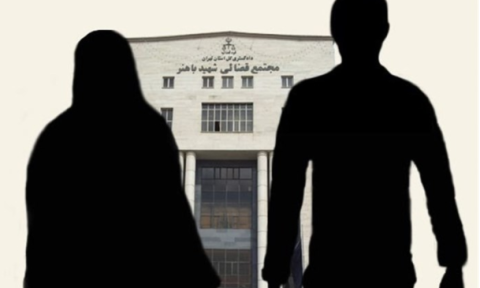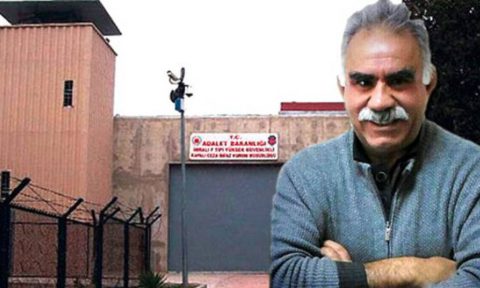An Analysis of John Bolton’s Memoir
I took the bullet for my dear readers and struggled myself through John Bolton’s 570-pages long memoir: ” The Room Where It All Happened “, to highlight the most important passages on the Kurds, of what the former national security adviser reveals about the Trump administration’s actions.
Some passages in this – mostly very boring and long-dreaded – memoir have outright shocked me. And I can only conclude the US is the most grossly negligent, horribly dysfunctional and morally bankrupt regime that the world faces today. As a detailed analysis of this book would turn into an unreadably long review, I focused on the largest tragedy in this book: the Kurds being used as US’ footmen – thrown in front of the lions on Erdogan’s request – in the endless Syrian conflict, which the US only seems to carry on out of fear for the growing influence of the Islamic Republic of Iran.
The Kurds: Trump’s unwanted ally

While reading John Bolton’s memoir, the group I felt most pity for were the Kurds. It is crystal clear that the Kurds are seen as a useful military asset against ISIS, a tool to prevent ‘Iranification’ of the area, a bargain against Turkey, and a way to divide Syria.
The Kurds are probably – after Israel – the most pro-American group in the Middle-East. They rely on the US for their mere existence and have sought repeatedly for US support. The Kurds cherished major expectations upon Trump’s election, as many former US-presidents openly backed and supported them. But, according to his former NS adviser John Bolton, Donald Trump actually despises the Kurdish minority that has set all hopes on American support.
This despisal can be noticed in the following quote, which is the first mention of the Kurds in the book, on page 41. John Bolton wasn’t even Trump’s National Security Adviser yet as he and the president had a telephone conversation on US military presence in Syria, and Trump allegedly said: “I don’t want to stay at all. I don’t like the Kurds. They ran from the Iraqis, they ran from the Turks, the only time they don’t run is
when we’re bombing all around them with F-18s”.
From this telephone conversation, it was pretty clear that Trump was so set on leaving Syria – one of his campaign promises – that he simply did not care about leaving the Kurds to their own faith after fighting ISIS under US-support for several years, something he later repeated at a NSC meeting described in chapter two. Trump’s advisers tried to tell him that leaving the Kurds to ‘get slaughtered’ was not good policy, as treating allies like they’re dispensable would hinder the US’ recruitment of new allies later on. Yet, the Trump-administration was probably the most pro-Turkish of all US administrations. He empowered a foreign-policy team that was the most
pro-Turkey in US history, and this in turn empowered Turkey to begin taking over Kurdish areas of Syria.
On the same page, the reason Trump wanted out of Syria so badly is stated. His main reason was ‘the service’ he was doing for his ‘enemies’. He strongly felt fighting ISIS was only doing Assad’s Syria, Russia and Iran good. Later on, Trump allegedly says: “all we did was save Assad”.
The Trump-Erdogan “bromance”

The next time the Kurds are mentioned in John Bolton’s book, is after a bilateral meeting with president Erdogan at the Buenos Aires G20 summit, where the two – according to Bolton – started their “bromance”. Trump promised Erdogan to ‘fix the Halkbank issue’ on Turkish violations of US sanctions imposed on Iran, and the two had a chat on both the Kurds and Fethullah Gulen.
John Bolton argues that Iran and Turkey were already thinking of their next moves in Syria, after ISIS would be defeated, something the Trump administration hadn’t yet. He himself calls the Kurds an ‘awkward squad of allies’ . “Erdogan was purportedly interested in destroying the caliphate, but his real enemy was the Kurds, who, he believed with some justification, were allied to the Kurdistan Workers’ Party, or PKK, in Turkey, which the US had long considered a terrorist group. Why we were affiliated with one terrorist group in order to destroy another, stemmed from Obama’s failure to see that Iran was a much more serious threat, now and in the future.Many parties to this conflict opposed ISIS, including Iran, its terrorist proxy Hezbollah, and its near-satellite Syria. Tehran, however, unlike Obama,was also focusing on the next war, the one after ISIS was defeated. As the ISIS caliphate shrank, Iran was expanding its span of control in the region, leaving the US with its awkward squad of allies.”
On the 14th of december, Trump and Erdogan held the famous phone call in which Trump ok’ed his withdrawal from Syria and the start of a new military operation. Erdogan shared with Trump Turkey’s “legitimate security concerns caused by the presence and actions of the terrorist organization PKK/PYD/YPG.” The Turkish president said that Turkey would launch a new operation within days against the YPG which controlled swathes of Syria’s northern border region, in what would be Turkey’s
third military campaign in Syria in two years.
John Bolton himself seemed very distraught at the idea, and argued that Trump did not think of the consequences US’ withdrawal would have for the greater picture. It is palpable throughout the memoir that the Trump administration faces a dilemma when it comes to Syria’s Kurds. On one hand it doesn’t want to stay in Syria, Trump dislikes them, and has good relationships with Turkey, but on the other hand, Trump’s advisers fear Iran’s ever-growing influence in the Middle-East. John Bolton and Mike
Pompeo both argue with the president to keep him forcibly anti-Iran, something that Obama wasn’t. Eventually, the US chooses to continue to support the Kurds, albeit because of the threat the Kurds siding with Syria and Iran might pose.
“With most of the ISIS territorial caliphate gone (although the ISIS threat itself was far from eliminated), the big picture was stopping Iran. Now, however, if the US abandoned the Kurds, they would either have to ally with Assad against Turkey, which the Kurds rightly considered the greater threat (thereby enhancing Assad, Iran’s proxy), or fight on alone, facing almost certain defeat, caught in the vise between Assad and Erdogan. What to do?”
At Christmas, Trump visited the al-Asad base to discuss practical issues on pulling out of Syria. He and his administration agreed on a “two week solution” in which they’d give a final blow to the ISIS caliphate, and Trump could withdraw his troops without anyone stating he didn’t fulfill his promise of defeating ISIS.
In the next week, preparations were made on the division of territory. It is crystal clear that the Turkish invasion of North-East Syria was planned and prepared between Turkey and the Trump administration, something
Kurdish leaders that remain seeking for US support should know well.
John Bolton states on p. 189: ” Jim Jeffrey circulated a color-coded map showing which parts of northeastern Syria he proposed to allow Turkey to take over and which the Kurds could retain .”
The reason for US’ reluctance to protect their ally is mentioned as well. Trump was pushing to get out of Syria fast, as he knew Erdogan was going to invade the country, and he didn’t want him to attack the Kurds before the US military had left. Trump was eager to pull out, as his troops had operated side-by-side with the Kurds, who he was about to betray.
Trump reportedly pushed: “We don’t want to be involved in a civil war. They’re natural enemies. The Turks and the Kurds have been fighting for many years. We’re not getting involved in a civil war.. “
The Aftermath
The events that happened after the meetings and conversations John Bolton described, are known and history. The Syrian Kurds have lost great swathes of territory to the Turkish-backed invasion of North Syria. The territory division Jeffrey showed on his map has become reality. Kurds are oppressed horribly throughout Turkish-occupied areas and the US remains in Syria with one foot in, and one foot out. Currently, the US and Macron are pushing the Kurds into reconciliation talks with their Kurdish rivals, as the Kurds keep hoping that US military support will turn into political
support one day. These talks can be seen as a diversion to keep the Kurds from reconciling with the Syrian government.
Bashar al-Assad has won the war. The Syrian Arab Army, supported by both Russia and Iran on all fronts, pushes forward slowly to liberate the territories under occupation. What will happen to the Kurds if the Syrians approach the North-East? Knowing that they have lost, the Trump-administration still heavily supports Turkey, and keeps its grip over the Kurds to be able to bargain its way out.










